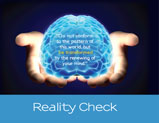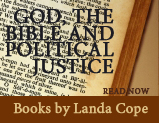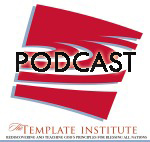God, the Bible and Political Justice: Chapter 2
GENESIS 3-9:THE RED THREAD OF VIOLENCE BEGINS
From the moment God’s order is broken in Genesis chapter three the fruit is violence. The human race spirals from violence against man, man against animals and man against the earth. The consequences of sin produce fear of creation, sorrow in child bearing and frustration in work that may produce nothing. And, most devastating, it produces in man shame, a sense of rejection and the loss of identity. The human creature, separated from his Creator, begins to look to himself for validation and his work and the material world that surrounds him, as the source of his value.
God’s wonderful human creatures no longer know who they are, where they are from or why they are here. They no longer have a source of meaning in God. Separated from his Creator, man must fend for themselves to establish their value. The fruit of this loss of perspective is a race tragically turned in on themselves and everything that surrounds them. God tracks the history of the tragedies influence as an escalating history of bloodshed, the red thread of violence through all of Scripture. The dreadful outcomes begin immediately.
Selected History
It is important to remember that God is not attempting to tell all of human history. There are myriad of other things going on simultaneously. God is intentionally selecting those parts of history that will affect all of history and exemplify the universal human condition. He is writing the “urgently need to know” version of our origins. With this in mind there is no doubt that from God’s perspective the gravest consequences of sin is the immediate loss of the value of human life resulting in escalating violence. Through out Scripture God is trying to limit the damage of the fall and lose of human value while bringing His beloved human race back to his value in Him. Any thing that devalues human life then is counter to Kingdom strategy.
The Tree
You cannot produce a just society by seeking to eliminate human choices. First of all, it is impossible to administrate and secondly it is contrary to the very to the very nature of the thing God is trying to save.
The Bible presupposes that the “image of God” in the human race includes freedom, choice and limited autonomy. In order for “choice” to be real there must be at least one way in which “choice” can be expressed. Nothing in the Garden is denied Adam except the fruit of one tree, the tree of the knowledge of good and evil. Whatever our interpretation of this passage, clearly the tree represents a choice and specifically the choice of whether to obey or disobey God’s authority beyond what He has given us, to recognize that our human authority has a source and limits. The possibility of choosing and the consequences of our choices are a fundamental theme in of all scripture.
A Rather Large Garden
In fairness to God we must put this one “tree” in perspective. The Garden of Eden extended from the Euphrates River at it’s NE border to the river Nile, or possibly the Wadi of Egypt in the SW. Either way it is a very big garden, encompassing much of what we now know as Iraq, Syria, Turkey, Jordan, Saudi Arabia, Qatar, UAE, Kuwait, Oman, Yemen, Israel, Gaza and eastern Egypt.
In this massive garden, full of trees, there is “one” tree that God has forbidden to Adam! This tree is not the “trick of God” to stumble man by constantly confronting him with forbidden fruit. It is very simply and minimalisticly an opportunity to express the freedom of choice. Without it, man is left incarcerated by God rather than co-ruler and heir of His Kingdom.
Adam, male and female, chose to disobey God’s one law. They eat from the only forbidden tree in the garden. The first sin, the first injustice, is committed. It is a crime against God’s created order. We have a created order because that is how God has made the cosmos. We have crime because God has made man free and able to make choices and we have consequences because the cosmos, man and the choices we make are all real.
Consequences are not arbitrary “smacks” of God. They are the outcome of the reality of our lives, the reality of the universe we live in, and the reality of our choices. Sin is not sin just because God just decided to forbid it. “Sin is sin” because it will destroy us. The consequences in creation are not judgments of motive or value but the real outcomes of our real choices made in a real universe. God is trying to protect us.
Gravity is real. I jump. I fall. I am hurt. Breaking God’s laws had and has a devastating impact on us and the world we live in. Whether we mean to break the law or not is a separate issue. God is real. I am real. The cosmos is real and the consequences of my actions are real. Thinking about murder and committing murder are two very different issues. They are both sin because they destroy but one has more grave and tangible consequences than the other. One destroys me, which is tragic, but the act destroys another and that in turn begins to destroy the community. One is a moral dilemma between God and I. The other is an issue of justice between the community and myself. Regardless of my motive, the fact of death has consequences.
The tree was there; therefore temptation was there as well. Temptation is contained in the fact that we are capable of choice. Adam chooses to disobey. The reality of “knowing good and evil” enters the world. Sin and disobedience are no longer only a possibility, they and their consequences are here and reeking their havoc. The crime of chapter three was not that evil was a possibility. The crime was doing it. And the consequences of that crime were not arbitrary acts of God to punish. They were the “built in” consequences of breaking God’s created order. And the breaking of that order must have boundaries less it escalate into total destruction.
At this point in time God is the judiciary. He is dealing with lawlessness in the human race directly. We can look at the Genesis chapter five through nine as a template of values for the judicial process and we will see these same values carried through the due process God reveals through Moses in the Law. We will assume here that none of us are God and therefore our proceedings will need checks and balances against human error and corruption. God alone is able to administer pure justice.
The Hebrew definition of justice is the restoration of order or “right order.” With that in mind, the resetting of tension between equally important values always motivates God’s actions. We will come back to this in future chapters.
Trial #1: High Treason
God Vs. Adam
Our first offence takes place in Genesis chapter three and is the first act of human lawlessness. Adam was not ignorant of the law. God has made this one regulation of the tree clear, along with the consequences of breaking it. But Adam broke the law. There is no malice here, except for the actions of the serpent. But the Law has been broken. Right order has been broken.
God begins these proceedings by seeking out the accused. He takes testimony from Adam and they both, more or less, plead quilt. I suppose we could say that the Serpents testimony is inadmissible, or useless, as he is known to be a professional liar. It is not that God needs testimony in order to know what the truth is. So why bother with it? Could it be that owning our actions is an essential part of the redemptive process? Could the declaration of the truth be part of what restores justice?
To the natural consequences they already experience of shame and quilt, God adds correction to the sentence. They must leave the Garden. They and their progeny are banned. They will no long live forever but will age and finally die. At this point in reading it is difficult to see why God decrees such a permanent and irrevocable sentence for this sin. But we will not get to the end of Genesis, a span of just a few hundred years before we see the horrendous impact of this first act of lawlessness on the development of all human society. The gravity of God’s sentence reflects the grave consequences of our loose of God’s perspective. God must act swiftly or the human race will destroy itself. He will limit the human potential for destruction by limiting the length of our life.
God intervenes to help lessen the tragic impact of man’s actions on himself. He sacrifices part of His beloved animal creation on man’s behalf in order to help deter his shame and guilt. This first bloodshed provides clothing for Adam and his wife but also foreshadows both the consequences that will inevitably flow out of choosing to break the law and what will be necessary to finally resolve the guilt and shame and separation from God it has produced. Blood has been shed. Sacrifices must be made.
God finds all three guilty and sentences them to life in exile from the garden. This will mean their experience will now include multiplied labor, sorrow in multiplication and, ultimately, a death sentence, through a limited life span.
Elements of trail # 1:
Freedom and choice: Are built in realities in the Kingdom of God.
Law: Human freedom is not without boundaries and therefore God has established laws.
Responsibility: We are responsible for the freedom we have been given and the boundaries God has created.
Consequences: The boundaries God has created are fixed and natural consequences will be experienced regardless of any external circumstances. Trial: Part of the redemptive process is helping man own his actions and reinforcement of God’s laws.
Testimony: Part of the redemptive process is allowing the accused to own responsibility for their actions.
Judgment and Sentence: Part of the redemptive process is closure, placing the injustice in the past and creating a clear understanding of the altered boundaries for the future.
Consequences: Choices are real and irrevocable. We must understand the impact they will have.
Correction: The consequences are based on the over all destructiveness of the crime the community present and future.
Compassion: Regardless of their actions, the guilty are human beings created in the image of God and their integrity is to be preserved.
Recognition: There is to be recognition of their innate human value regardless of their crime.
Trial #2: Fratricide
God Vs. Cain
We have no idea how many children Adam and Eve had after leaving the garden and before the birth of Cain and Abel. We can assume many as they lived a very long time. As we begin Genesis chapter 4 Eve, renamed by her husband in the previous chapter, is giving birth to Cain. God selectively preserves the story of Cain and Abel because it is a key turning point in human history. Cain’s murder of his brother reveals that in one-generation the consequences of the loose of God and His perspective of reality leads to the progressive devaluing of human life and now, murder.
Cain premeditates and murders his brother! The story is a familiar one. Abel is a shepard. Cain tills the soil. They understand that there is a God but no longer understand what this “god” wants. In order to get “god’s blessing” they each bring an offering of the fruit of their labor. God “prefers” Abel’s blood offering because it accurately symbolizes the consequence of sin and the necessary path to redemption, a diminishing of the value of life and the shedding of blood. God was not accepting Abel and rejecting Cain. He was correcting Cain’s perception of what He wanted and was trying to teach him. Rather than be corrected and learn, Cain becomes defensive and angry. He turns God’s instruction into value judgment of himself and a personal “identity crisis.”
God appeals to Cain to stop reacting and understand that “he” is accepted. It is “his offering” that is rejected. He can “master”, have authority over this temptation. He can overcome it by accepting God’s instruction. But Cain does not accept God’s perspective and chooses murder instead. Cain, full of shame and anger with God, comforts himself by killing his own brother. Fratricide is born!
The Trial
God takes evidence by questioning the witness. “Where is your brother?” Cain lies. “I don’t know.” Cain then asks God, “Am I my brothers keeper?” Cain questions whether he has any responsibility for another human, even his brother.
God brings forensic evidence in the form of blood found in the ground. The material world is “real” and evidence can be found. Evidence can be “real,” guilt and innocence can be real and a judicial finding can “be true and just.” Our distortion of reality and misrepresentation of facts, intentional or not, does not change reality. Abel is dead. Cain killed him. God evaluates the evidence for Cain’s benefit and finds him guilty.
Sentence is pronounced. Having preferred himself over his brother, Cain receives a life sentence in exile. He loses his land, vocation, family and community. Having preferred self over another’s life Cain loses his life, as he knows it. Correction will protect the community while sustaining Cain’s life. He may think his life is more important than anyone else’s but God does not. However, God does value Cain’s life.
The Appeal
Cain appeals God’s verdict and God is willing hear him. Cain says that the punishment is too severe. Not only is he losing his land and family, he is losing the protection they provide him and he will surely be murdered. What an interesting argument for a man who has just murdered his brother. However, Cain is arguing God’s perspective, “human life has value,” even his. God agrees with him. The sentence should model a different set of values than the crime.
Cain’s crime is the devaluing of human life. God’s desire is for Cain to “value human life.” If the crime is devaluing of human life how do we enforce the law and correct the criminal. In this case God marks Cain so that his “life” is protected. Seven being the number representing perfection, Cain’s life is worth seven times another mans. And another man’s life is worth seven times his. The meaning? Life is perfectly sacred.
Elements of trial #2:
Freedom and choice
Law
Responsibility
Consequences
Trial
Testimony
Judgment and Sentence
Consequences
Correction
Compassion
Recognition
Added:
Appeal process: Even the guilty are to have a voice.
Modification of sentence: Judicial review may be part of the redemptive process.
Forensic evidence: The material world does not lie.
Protected rights of the convicted: All human life is sacred.
Trial #3: Anarchy
God Vs. The Human Race
In just five short generations from Cain to his great, great, great grandson Lamech, human violence escalates beyond imagination. Lamech boasts in Genesis chapter 4:23 that he would kill a man for merely slapping him and seventy-seven deaths would be required to avenge his life. God’s act of leniency to Cain has not resulted in humility and increased understanding of the value of life. It has been twisted to serve egocentric arrogance. Cain’s relatives have turned God’s leniency into an excuse for self-serving violence and murder at multiplied perfection. A single murder has grown into a culture of violence. How will God stop the violence and yet preserve His precious human creation?
Lamech’s father was Methushael who lived 969 years and Lamech’s son was Noah. Six generations after Cain, here is God’s evaluation of the human race:
“Now the earth was corrupt in God’s sight and was full of violence. God saw how corrupt the earth had become, for all the people on earth had corrupted their ways. So God said to Noah, “I am going to put an end to all people, for the earth is filled with violence because of them. I am surely going to destroy both them and the earth.” Genesis 6:11-13
The culture of violence is now universal. God finds murder in the heart of every human being with the exception of Noah. Preservation of the human race will require correction of the entire community of man. The human race has so lost all understanding of the value of life that they are going to self-destruct slowly and brutally. God is looking for a way to save man without destroying the race entirely.
God decides the only just way to apply mercy is to destroy the human race quickly and preserving the life of the most righteous man He can find to give the human race a second chance at survival. This is not fairness to Noah and his children. They are not “good” by God’s standard, as will soon be revealed, they are “the best” God has to work with. This leniency God is showing is not on behalf of Noah and his family. It is for the survival of the human race.
God faces a dilemma. If He does nothing, the human race will self-destruct taking the rest of creation with them. He must intervene. If He is to intervene He must be true to Himself and His character. If He were only just, he would wipe out the entire human race. They are addicted to blood. If He is only merciful, the violence will continue and increase exponentially as it has since Cain and man will destroy himself. How will God stop the violent destruction of the human race in a way that does not destroy the human race? The objective is redemption not anialation. If God did not value us, His problem would be easily solved.
The dilemma is to hold two perfect attributes in tension: justice and mercy. Choosing one or the other misrepresents who God is and destroys God’s order. Neither, by themselves is justice. Justice in the Kingdom of God is holding onto and reinforcing both, a very painful task.
The Trial
In the third earthly trial God finds the human race guilty of murder and genocide in thought, word and deed. He pronounces the death penalty. However, He will spare one man, the most righteous He can find, and his family is order to spare the future of the human race. He will give humanity a second chance: justice in tension with mercy.
This sentence is devastating to God and everything He values in creation, it is only possible for Him to execute because of His great love for man. This is the only possibility of saving the human race from themselves. However, He promises He will never do it again. Listen to His heart:
“Never again will I curse the ground because of man, even though every inclination of his heart is evil from childhood. And never again will I destroy all living creatures as I have done. As long as the earth endures, seedtime and harvest, cold and heat, summer and winter, day and night will never cease.” Genesis 8:21-22
The Death Sentence
Death is the consequence of sin from Adam on. Violence and bloodthirstiness spread like wildfire throughout the human race. God’s attention is not only on the individual’s like Cain who commit murder, but also on the communities that breed violence and murder. God’s focus is not on abstract solution but on deterrents to violence. The judicial solution must actually decrease violence. If it does not, it is not redemptive and we must find another.
If we are to think like God we must recognize that we are not only dealing with “violent individuals” we are dealing with “violence as the culture of man.” If we seek only to rehabilitate individuals we will allow for the continual perpetuation and escalation of human violence. We must seek solutions that also impact change and rehabilitate the communities where it breeds. Again we must maintain a Kingdom tension between the responsibility of the individual and the responsibility of the community.
While God makes it clear He will never use global destruction as a deterrent to violence again, he also puts into place two additional corrections in this sentence. He severely decreases the human life span for the second time and for the second time He sacrifices his beloved animal kingdom in the flood. He then gives us meat to eat. It does not stretch the imagination to think that there was wide spread cannibalism. But, He does not give us the blood:
“1 Then God blessed Noah and his sons, saying to them, “Be fruitful and increase in number and fill the earth. 2 The fear and dread of you will fall upon all the beasts of the earth and all the birds of the air, upon every creature that moves along the ground, and upon all the fish of the sea; they are given into your hands. 3 Everything that lives and moves will be food for you. Just as I gave you the green plants, I now give you everything.
4 “But you must not eat meat that has its lifeblood still in it. 5 And for your lifeblood I will surely demand an accounting. I will demand an accounting from every animal. And from each man, too, I will demand an accounting for the life of his fellow man. 6 “Whoever sheds the blood of man, by man shall his blood be shed; for in the image of God has God made man. 7 As for you, be fruitful and increase in number; multiply on the earth and increase upon it.” Genesis 9:1-7
His objective is clear. He is trying to stop the violence and brand the sacred value of human life into our thinking.
A Taste For Blood
God had created us frugivores, eating the seeds of plants and trees. But we have literally acquired a taste or need for blood.
“Then God said, ‘I give you every seed-bearing plant on the face of the whole earth and every tree that has fruit with seed in it. They will be yours for food. And to all the beasts of the earth and all the birds of the air and all the creatures that move on the gound- everything that has the breath of life in it-I give every green plant for food…” Genesis 1:29-30
But now we, humans and many animals, become carnivores.
God begins again with Noah and His family.
Elements of trial #3:
Freedom and choice
Law
Responsibility
Consequences
Trial
Testimony
Judgment and Sentence
Consequences
Correction
Compassion.
Recognition
Added:
Community guilt: Not only individuals are responsible but communities are responsible for creating the environment that breeds crime.
Permanent consequences: Severe limit to human life span
A drastic unrepeatable one-time attempt at starting over.







